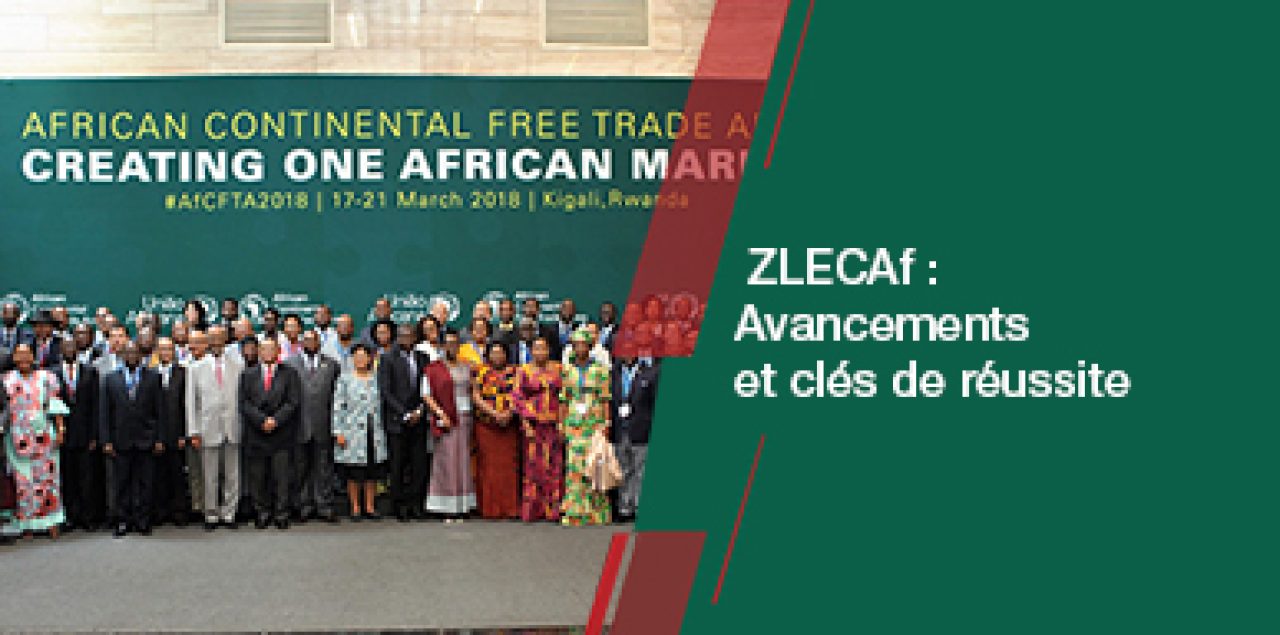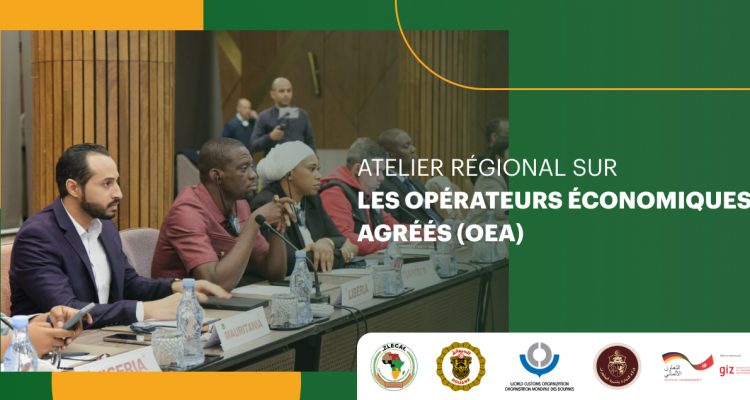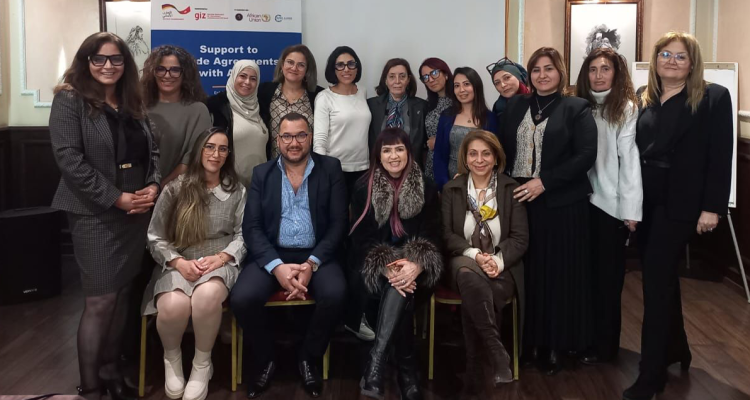La Zone de libre-échange continentale africaine (ZLECAf) est le projet phare de l’agenda 2063 de l’Union africaine, qui vise à accomplir un développement inclusif et durable du continent africain au cours des 50 prochaines années. Il vise à promouvoir le commerce intra-africain en fournissant aux États membres des accords commerciaux complets et mutuellement avantageux couvrant le commerce des biens et des services, l’investissement, la propriété intellectuelle, la politique de la concurrence et le commerce électronique.
L’accord est entré en vigueur le 30 mai 2019. Aujourd’hui, la ZLECAf compte 54 des 55 pays qui sont signataires et 36 pays sont des États parties en raison du dépôt de leurs instruments de ratification.
Le 1er janvier 2021 a également marqué une étape importante en Afrique avec le début des échanges commerciaux dans le cadre de la ZLECAf. Ce début des échanges commerciaux a été célébré dans toute l’Afrique comme un jour historique pour le continent, car il a marqué le jour où l’Afrique a fait un pas de plus vers la vision d’un continent qui sera plus intégré.
Devenue officiellement opérationnelle, la ZLECAf sera testée sur la scène du commerce mondial avec en toile de fond la pandémie de Covid-19. Malgré les conditions actuelles de la pandémie, la mise en œuvre de la ZLECAf représente de réelles opportunités pour transformer l’économie africaine et stimuler la prospérité. La ZLECAf permettra aux investisseurs étrangers et africains d’accéder à un marché unifié mais aussi de bénéficier et d’accentuer la valeur industrielle et les chaînes d’approvisionnement entre l’Afrique et les marchés extérieurs.
En effet, la ZLECAf rassemblera un produit intérieur brut dépassant les 3,4 billions de dollars et les estimations de la Commission économique des Nations-Unies pour l’Afrique (CEA) indiquent que la zone de libre-échange africaine aura la possibilité d’augmenter le commerce intra-africain de 52,3% [1]
en supprimant les droits de douane, voire même le doubler si elle réussit à réduire les barrières non-tarifaires.
Ainsi, la ZLECAf marquera la plus grande zone de libre-échange au monde depuis la création de l’Organisation Mondiale du Commerce (OMC) en 1995. Par conséquent, il est important que les mesures d’adaptation s’articulent autour de la définition de stratégies qui contribueront à la reprise des économies africaines et à la mise en œuvre de la ZLECAf.
À l’occasion du Sommet extraordinaire tenu par visioconférence sur la Zone Continentale le 1er janvier 2021, la commission de l’Union africaine a remis au Secrétaire général de la ZLECAf plusieurs instruments pour faciliter le démarrage de Commerce Sous le régime commercial préférentiel de la ZLECAf.
Plusieurs outils développés avec les différents partenaires de coopération contribuent à la réussite du projet :
- L’un des éléments qui sera d’une importance capitale à la mise en œuvre de ce projet est la plateforme « tradebarriers.africa » . Il s’agit d’une plateforme en ligne développée par la CNUCED et l’Union Africaine pour aider à éliminer les barrières non tarifaires au commerce en Afrique. L’outil, tradebarriers.africa, aidera les gouvernements africains à surveiller et à éliminer les obstacles que rencontrent les commerçants et les entreprises, qui ralentissent la circulation des marchandises et coûtent chaque année des milliards aux importateurs et aux exportateurs de la région.
- Un portail en ligne des négociations tarifaires sera également mis en place ainsi qu’une application Web et mobile pour les entreprises. L’application sera utilisée comme un moyen unique pour un accès à l’information par le public mais également par les entrepreneurs.
- Création de l’Observatoire Africain du Commerce (OAC) afin de mettre l’accent sur la transparence et l’intégrité du marché de la ZLECAf dans le cadre du commerce des biens et des services, la . Cet observatoire fournira des informations fiables et en temps opportun sur les opportunités émergentes en ce qui concerne les règlements appliqués, les conditions du marché ainsi que les opérateurs économiques agréés.
- Lancement du système panafricain de paiement et de règlement (PAPSS) en juillet 2019 en tant qu’outil clé pour l’implémentation du projet. L’initiative PAPSS vise à assurer une interconnexion entre les différents acteurs évoluant dans le paysage du commerce africain notamment les prestataires de services de paiement, les banques ainsi que les entreprises. Dans un monde où la numérisation évolue rapidement, un règlement des transactions commerciales rapide voire instantané est devenu de plus en plus crucial pour répondre aux exigences du marché.
Today is a historic day in #Niamey as #Afreximbank launches the Pan-African Payment and Settlement System (PAPSS), which will transform how Africa trades. What is PAPSS? What is in store? How will it impact #AfricanDevelopment?#PAPSS #AfricanTradeAccelerated#AfCFTA #AUSummit pic.twitter.com/k4yvkcSGW2
— Afreximbank (@afreximbank) July 7, 2019
- Afin de permettre aux pays de s’adapter plus efficacement aux pertes importantes et soudaines résultantes de l’application de cet accord, une « Facilité d’ajustement » de 1 milliard de dollars sera également mise à disposition.
- Enfin, le Conseil des entreprises africaines ou African Business Council (AfBC) qui a été également instauré représente l’organe suprême de promotion et de lobbying des intérêts des entreprises panafricaines. L’adhésion à l’AfBC est ouverte aux organisations nationales, régionales et continentales du secteur privé. Il s’agit d’une institution indépendante du secteur privé de l’Union africaine qui a pour mission d’être la première plate-forme de plaidoyer pour la coopération et l’engagement du secteur privé au niveau continental tout en renforçant les liens économiques et d’investissement entre les communautés d’affaires du continent.
D’un autre côté, la récente décision de l’Assemblée de transférer les fonctions et les structures de la Commission de l’Union Africaine au secrétariat de la ZLECAf a pour principal objectif une meilleure efficience de la mise en œuvre du projet tel que la mise en marche de l’agenda intégré et des négociations en cours.
Aujourd’hui, le maintien de la dynamique de mise en œuvre joue un grand rôle dans la réalisation des objectifs de développement du projet de la zone de libre-échange continentale africaine. Afin d’assurer ce maintien, plusieurs étapes sont nécessaires à concrétiser :
- La mobilisation pour la signature et la ratification universelle de l’accord ZLECAf : à ce jour la Zone de libre-échange continentale africaine compte 54 des 55 pays qui sont déjà signataires, 36 états ayant déjà ratifié l’accord et d’autres sont également attendus.
- La finalisation des négociations en cours sur les règles d’origine : Les règles d’origine (qui permettent de déterminer l’origine des marchandises entrant sur un territoire douanier) ont déjà été approuvées dans leur large majorité par la plupart des pays et « les 20 % restants doivent donc être achevés d’ici juillet de cette année », a indiqué Mr. Faki Mahamat, président de la commission de l’Union Africaine.[2]
- La finalisation des négociations en cours sur les listes de concessions tarifaires : Dans le cadre de cet accord, les Etats parties ont convenu sur une libéralisation d’au moins 90% de leur commerce. Cela sera finalisé dans un délai de 10 ans pour les PMA et de 5 ans pour les pays en en voie de développement du continent.En outre, 7% des produits sont considérés comme étant sensible, ce qui implique que le délai du démantèlement tarifaire sera à hauteur de 13 ans pour les PMA et de 10 pour les autres. Par ailleurs, 3% des produits seront exclus des engagements tarifaires et ne feront donc pas l’objet de libéralisation. Toutefois, le volume de ces produits ne doit pas représenter plus de 10% de la valeur des importations africaines (en moyenne sur une période de référence de trois années (2014-2016 ou bien 2015-2017)).
- La finalisation des négociations en cours sur le commerce des services : Ces négociations portent principalement sur la prévisibilité de la réglementation d’accès aux marchés et sur le cadre de la réglementation intérieure et ont pour but de consolider la compétitivité des services grâce aux économies d’échelle, d’améliorer l’accès au marché continental africain mais également de promouvoir le progrès technologique dans le marché des services afin d’accélérer le développement économique.
- Conclusion des négociations de la phase II : La phase II des négociations concerne particulièrement les domaines des droits de propriété intellectuelle, de l’investissement et de la politique sur la concurrence.
En outre, alors qu’il avait été décidé que les négociations de la phase III se concentreraient sur un protocole sur le commerce électronique, ce dernier sera finalement négocié en parallèle avec les thématiques de la phase II. - Un renforcement institutionnel de la ZLECAf : Plusieurs mesures seront implémentées pour pouvoir assurer le renforcement institutionnel de la ZLECAf tel que la mise en place complète d’un Secrétariat durable et efficient chargé de la mise en œuvre de l’Accord. Nous pouvons également noter que plusieurs investissements ont été effectués à cette fin tel que le soutien de la Banque Africaine de développement qui a accordé un don de 4,8 millions de dollars américains à la Commission de l’Union africaine pour financer le projet d’appui institutionnel pour la mise en œuvre de la ZLECAf.
La ZLECAf offre à l’Affrique une occasion sans précédent d’harmoniser l’environnement commercial et représente donc un réel espoir de développement à long terme pour le Continent Africain. De son côté, le Président de la Commission de l’UA, Moussa Faki Mahamat a appuyé : Nous réalisons un vieux rêve des Pères fondateurs de l’OUA qui portait sur la création d’un marché commun africain.




